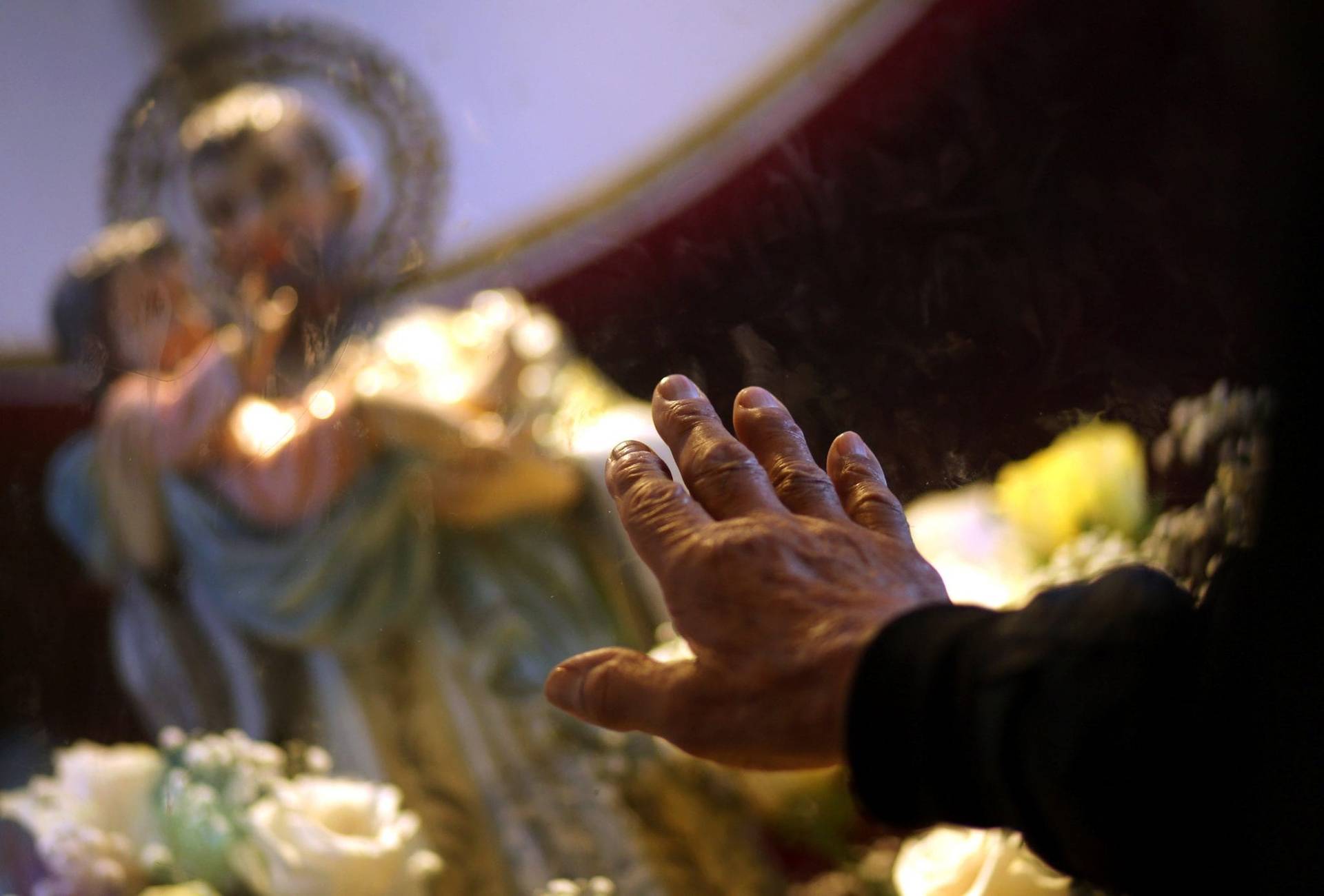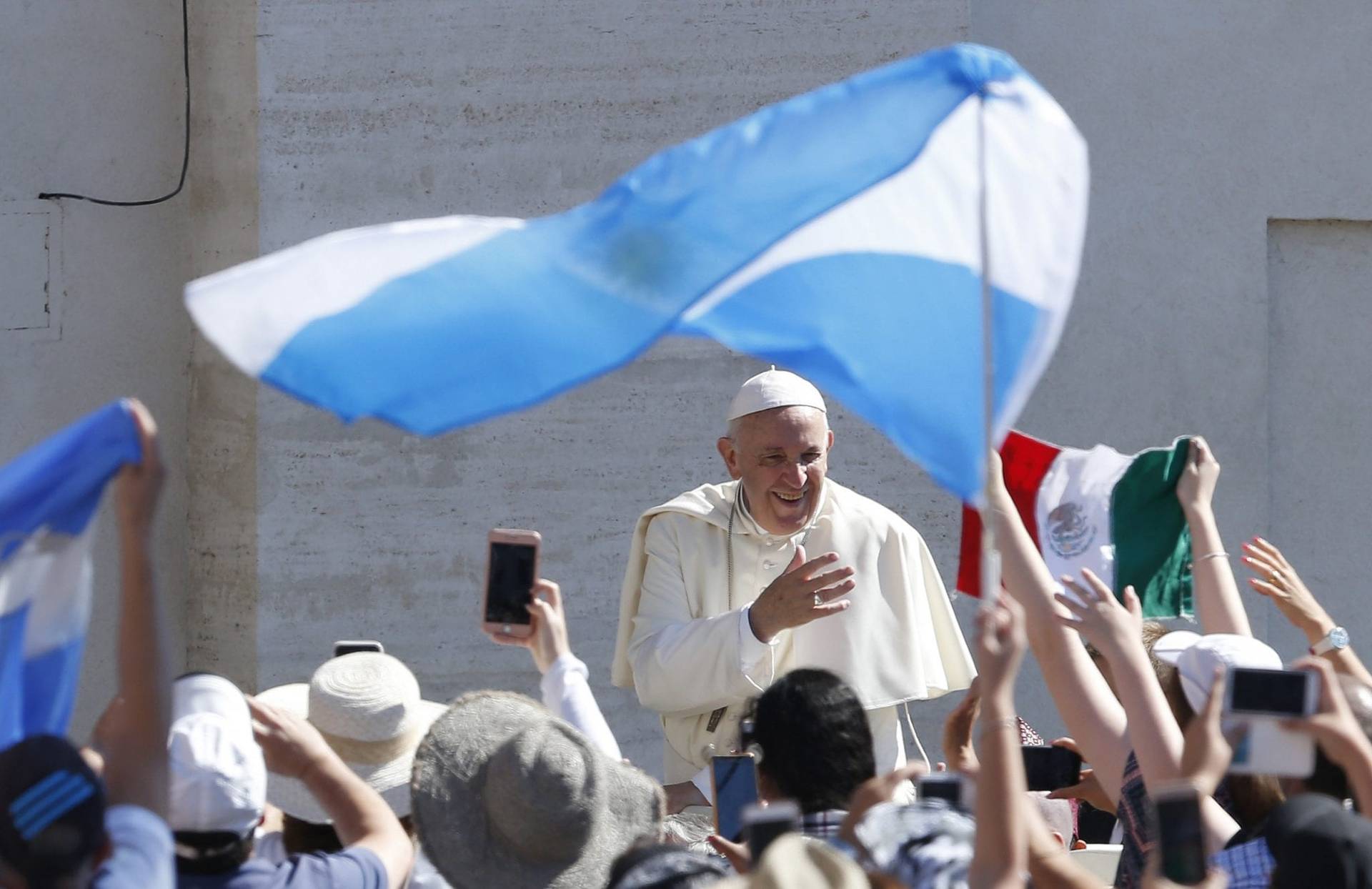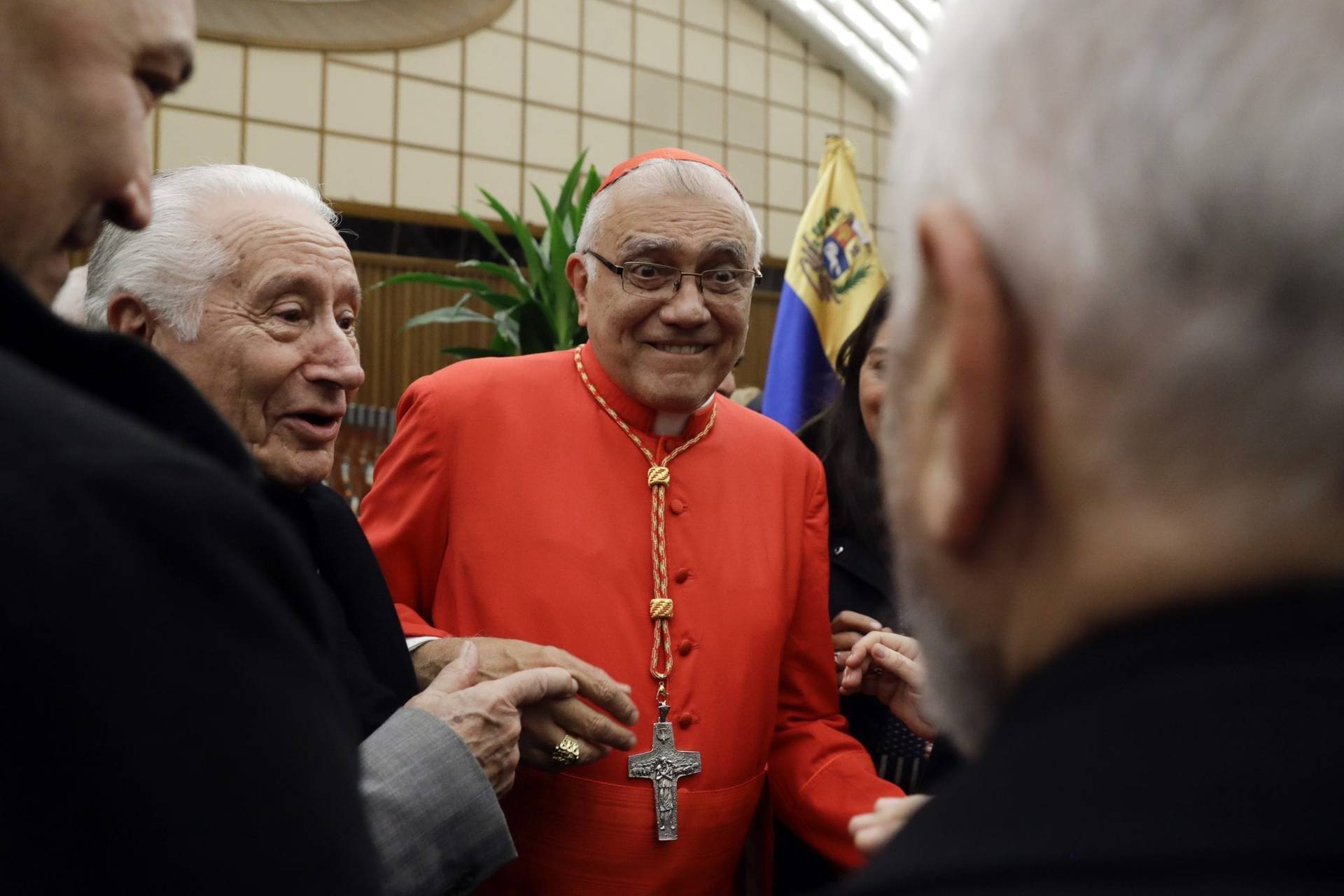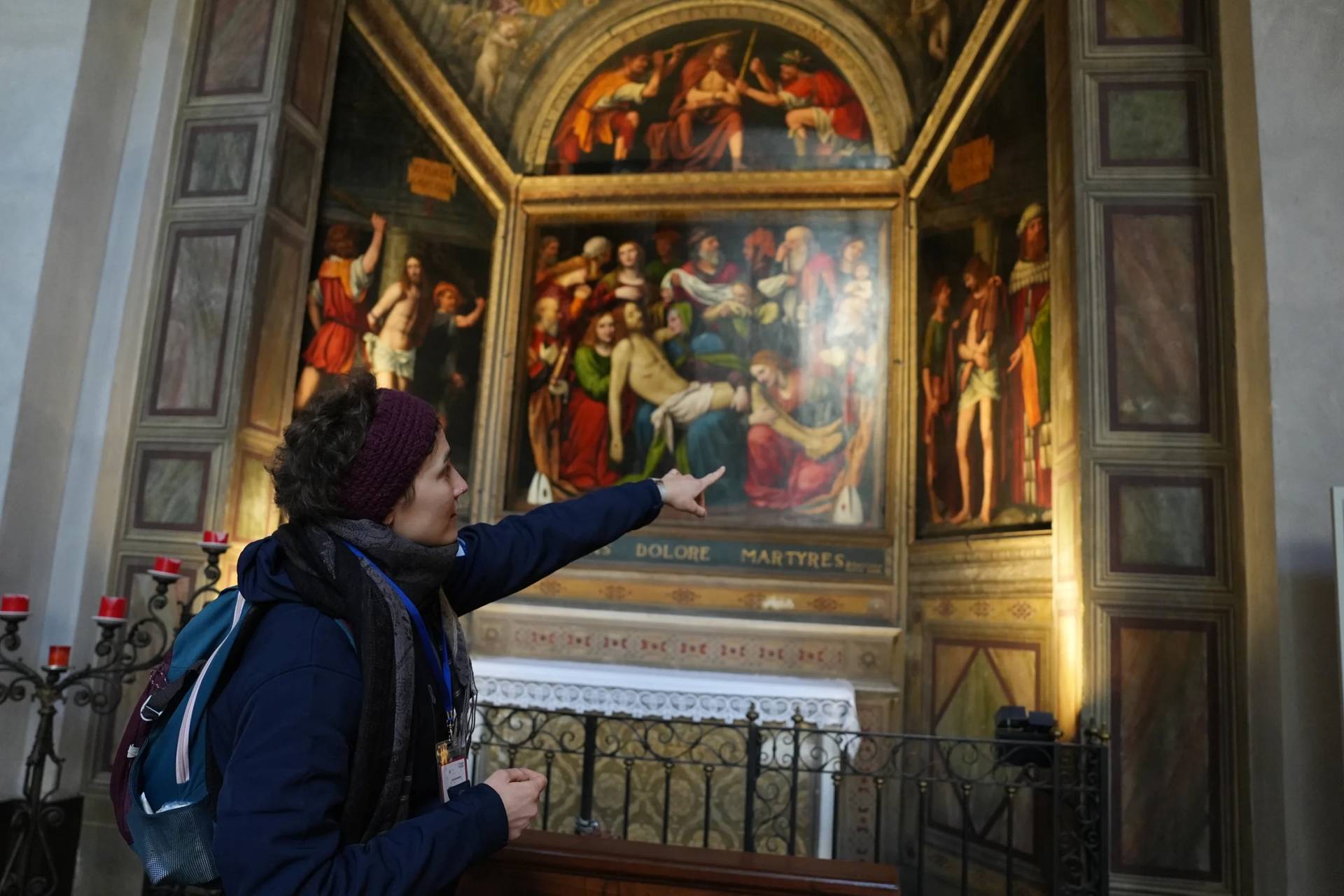SALTA, Argentina – August 8 marks a historic day for the pro-life movement in Argentina, as it’s the first anniversary of the country becoming only the second in the world to say “no” to abortion, the first one being El Salvador.
The young and the not-so-young are planning on rallying across the country, but particularly in front of congress, to “once again make a commitment with society, with those women who need support, or maybe a hug, to tell them that they will be able to move forward and that they’re not alone.”
The words belong to Connie Pallito, 23, one of the founders of Jovenes por la Vida, a pro-life Instagram account created on June 14 after the Chambers of Deputies gave half-approval to a bill defeated in the Senate last year that would have legalized abortion up to the ninth month of a pregnancy.
“The rally of August 8 will be a celebration, but above all, a promise by all the people who, fortunately, woke up to face an issue that, let’s be honest, occurs,” Pallito said. “We’re conscious that abortion happens. We are not against the woman who gets an abortion, but against the system that makes her believe abortion is her only solution.”
Together with other Argentine youth pro-life movements, such as Frente Joven, they’ve launched a campaign called “8A,” which includes an online commitment to defend life in all its stages, making “the light blue wave a world where everyone has a right to live.”
According to Pallito, the commitment from the pro-life Argentine youth is “to life, from the moment it’s conceived until its natural end, and all its stages. We support vulnerable mothers and all those children not yet born who cannot defend themselves.”
Together with her friend Sol Buchanan, they created the pro-life Instagram page as a response to what happened in the Chamber of Deputies. In less than 24 hours, they had 1,500 followers. A week later, when they reached 13,000, Instagram closed the account alleging it “promoted violence.”
Once they overcame the frustration generated by Instagram’s decision, they created a second account that, in 48 hours, had 17,000 followers. The page is also the “brain” behind the hashtag #OlaCeleste, meaning, “light blue wave,” a response to what the pro-abortion movement called the #MareaVerde, or “green tide.”
The impact of Ola Celeste, Bellito told Crux, was something they hadn’t anticipated: the hashtag became a global trending topic, and pro-life movements around the Spanish-speaking world picked it up. People began wearing a light-blue ribbon or handkerchief as a witness to their support of “both lives,” meaning the mother and the unborn child.
What began as an idea of two friends is now an NGO divided in three commissions: social work, politics and communication. The first one promotes initiatives to help women who face a challenging pregnancy, such as handing out hundreds of “Christmas boxes” in one of Buenos Aires’s most emblematic slums, Villa 31.
The second commission aims to support future leaders as they consider entering politics, and the third promotes different publicity campaigns.
When the debate took place last year, Bellito said, pro-life youth were very quiet at the beginning. She said many, herself included, were afraid of voicing their opinion because they were insulted and some were even beaten.
The online campaign was a way to demonstrate that those who are pro-life “are proud of our belief.” Today, the light blue handkerchiefs created with the motto of “Save both lives” can be seen throughout most of Latin America, and many were visible in Paris last year during a pro-life rally.
“We brought a freshness to the pro-life rallies, because we bring that joy and energy that is so representative of youth,” Bellito said.
Asked about what motivates her, the young journalism student said that she’s not doing what she does for herself but for her future children, hoping they can share her commitment to life.
“Maybe one day, though hopefully not, abortion will be legal,” she said. “And maybe they [her future children] will ask me why I didn’t do anything to stop it. I would like to be able to tell them that Argentina began a wave that awoke the world, promoting the values that made our country good: Defense of life, and the commitment to help those who have less.”
When it comes to institutional alignments, Jovenes por la Vida strives to be non-partisan and secular, because members and volunteers come from different political and religious backgrounds. Bellito insisted religious faith isn’t needed to defend life.
“We believe in freedom of expression, and we allow everyone to express their opinions with respect,” she said. “We have the law, the constitution and science on our side.”
The Argentine activists are in contact with pro-life movements around the world, including Latin America but also France and the United States, where they’re in conversations with Lila Rose, founder of Live Action, and even with some U.S. Senators.
“Depending on what happens in Argentina, 8A can have a global impact and become an international day of commitment in favor of protecting both lives, those of the mother and the unborn child,” she said.
From the Church, action not words
While the debate was taking place last year, many claimed the Church does “nothing” to help women who face an unplanned or unwanted pregnancy. Marcelo Arderiú, a layman from Rosario, is pushing back against that idea, arguing that the Church is “the institution that does the most to help these women.”
There are several NGOs in Argentina, such as Gravida or CAM, the Center for Help for Women, that have long provided support to women who are on the fence themselves or forced to have an abortion by families, partners or abusers.
Arderiú and his wife have long worked with CAM, and were also among the organizers of the pro-life rallies in their city, Rosario, some 150 miles from Buenos Aires. Their experience made them realize there was a need for homes for women who, deciding to go through with their pregnancy, find themselves alone.
Some 15 days ago, they opened the first Hogar Madre de la Ternura, Home of the Mother of Tenderness in Spanish, that will provide a home for six women and their babies. They already have three women who are ready to move, but bureaucracy is delaying things. They created an NGO named Fundacion Visitacion, Visitation Foundation, and they’re waiting for final approvals.
“We presented the idea to Archbishop Eduardo Martin, and he immediately said yes, in time bringing it up to priests in Rosario to see if anyone had a house that could work,” he said. “The response has been incredible. We need many volunteers to make this work, but also donations, and the Lord has been more than generous.”
Visitation Foundation is Catholic, and according to Arderiú, everything they’ve done so far has been rooted in prayer, adoration and “inspired by Christ and his mother, who, their yes, brought us salvation.”
But church-run homes for women who face complicated pregnancies have been popping up all over Argentina, even in the slums of Buenos Aires, where a group of priests known as the curas villeros have opened several homes. Father Jose Maria di Paola, for example, opened one in La Carcova last June. In one year, he told Crux, 28 babies were born.
Another organization that was born during last year’s debate was Barrios por la Vida, which translates to Shantytowns for Life. When representatives of this group spoke during the open sessions in Congress, all argued that poor women don’t want abortion, but do need help. Jovenes Por la Vida works with them too.
“In the slums, there’s no such thing as spare life,” Bellito said. “On the contrary.”
Despite the legislative victory last year, the young leader notes that they don’t see it as a “victory.”
“We didn’t manage to stop abortion in Argentina, and we cannot cover the sun with our hands,” she said. “What was accomplished was to stop the legalization of abortion, but this is a band-aid. We still have a long way to go. That’s why 8A doesn’t symbolize a victory but a reaffirmation of our commitment in favor of human life.”
Follow Inés San Martín on Twitter: @inesanma
Crux is dedicated to smart, wired and independent reporting on the Vatican and worldwide Catholic Church. That kind of reporting doesn’t come cheap, and we need your support. You can help Crux by giving a small amount monthly, or with a onetime gift. Please remember, Crux is a for-profit organization, so contributions are not tax-deductible.















